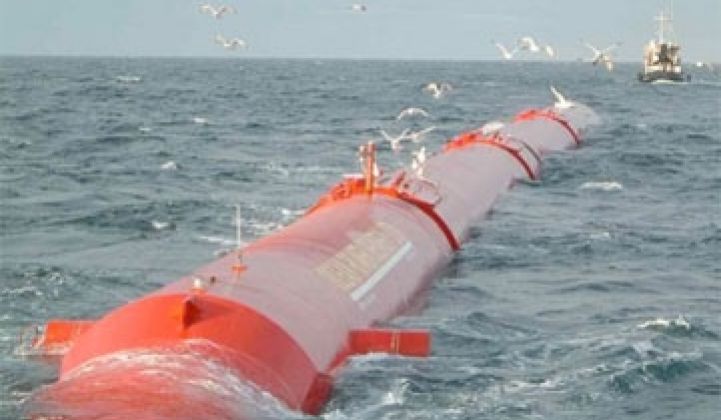First Solar will participate in the massive Desertec project, one more stop along their plan toward world domination.
The Arizona-based manufacturer of cadmium telluride solar modules will provide know-how on how to build large-scale solar power plants. The Desertec initiative will attempt to build renewable power plants in the deserts of North Africa that will supply a significant amount of power to the Europe, the Middle East and North Africa by 2050. Photovoltaics, solar thermal, wind, and other technologies, along with experiments in carbon capture, will likely ultimately play a role in the project.
Siemens is one of the big drivers. Right now, everything is in the planning stages, but Desertec is shaping up to be one of the largest construction projects ever attempted. (More on utility scale solar parks will be one of the subjects at the Solar Summit 2010 taking place in Arizona later this month.)
Like SunPower, Suntech Power Holdings and other large solar manufacturers, First Solar hopes to get a growing portion of its revenue from building power plants and selling power. In this situation, a module maker effectively becomes its own customer. First Solar has already signed on to build a 2 megawatt solar power plant in Inner Mongolia and has projects completed and underway in the U.S. and the United Arab Emirates.
Elsewhere, the Crown Estate, the office in England that issues leases for the property owned by his or her highness in the U.K., issued leases for up to 1.2 gigawatts of wave and tidal power by 2020. Pelamis Wave Power, the wave power pioneer with the up-and-down history, will participate in three 50 megawatt projects. Wave and tidal power have been promised for years, but the technical challenges and costs have hampered the industry. Another problem: many of the good wave and tidal resources are located away from population centers. Still, the technology has continued to improve. Many of the leaders in the industry are based in England, Ireland and Scotland, as ye old sea captain in this video can tell you.
Tesla Motors also said it will continue to make Tesla Roadsters in 2012. Earlier, it said it would stop in 2011, thereby leaving a gap until a new sports car came in 2013.
Finally, the Federal Communications Commission has issued recommendations for energy management for broadband in its national broadband plan. Happy reading.



